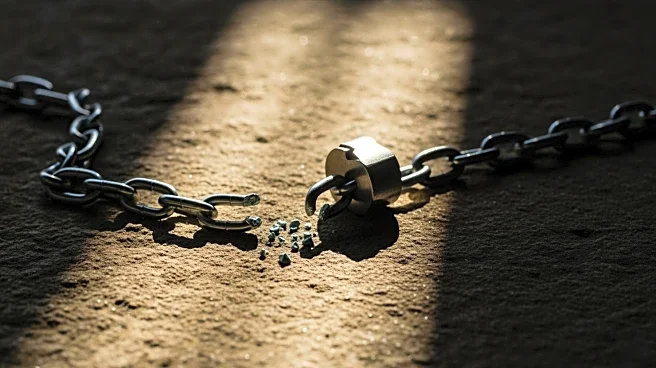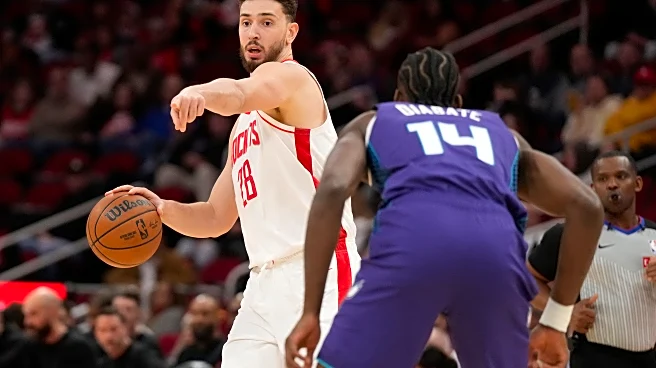What's Happening?
The documentary 'Holding Liat' captures the harrowing experience of the Beinin family, whose daughter Liat Beinin Atzili and her husband Aviv Atzili were seized by Hamas during an attack on their kibbutz on October 7, 2023. The film, directed by Brandon
Kramer and produced by Lance Kramer, explores the family's emotional turmoil and their efforts to advocate for Liat's release, given her status as an American citizen. The documentary has gained recognition, winning the top nonfiction prize at the Berlin Film Festival. It highlights the family's unique perspective, particularly Yehuda Beinin's vocal stance against using their personal tragedy to justify further violence against Palestinians.
Why It's Important?
The documentary sheds light on the personal impact of geopolitical conflicts, offering a humanizing perspective on the Israeli-Palestinian situation. It underscores the complexities faced by families caught in such crises, and the broader implications of advocacy and political discourse in these contexts. The film's reception indicates a growing interest in narratives that challenge conventional media portrayals, fostering dialogue on sensitive issues. By documenting the Beinin family's experience, the filmmakers contribute to a nuanced understanding of the conflict, potentially influencing public opinion and policy discussions in the U.S. and beyond.
What's Next?
The filmmakers plan to release 'Holding Liat' theatrically in the U.S. starting January, with screenings in New York and Los Angeles. This move aims to bring the documentary's urgent narrative to American audiences, encouraging further discourse on the Israeli-Palestinian conflict. The film's release may prompt reactions from political leaders, advocacy groups, and the public, potentially influencing U.S. foreign policy and humanitarian efforts. The documentary's impact could extend to fostering civil discourse and empathy, as viewers engage with the family's story and the broader geopolitical context.
Beyond the Headlines
The documentary not only captures the Beinin family's personal struggle but also delves into the ethical dimensions of advocacy and media representation in conflict situations. It raises questions about the role of personal narratives in shaping public perception and policy, highlighting the delicate balance between emotional response and political action. The film's exploration of family dynamics amidst crisis offers insights into coping mechanisms and the power of storytelling in healing and advocacy. As the documentary gains traction, it may influence cultural and media approaches to conflict reporting, emphasizing the importance of diverse perspectives.
















